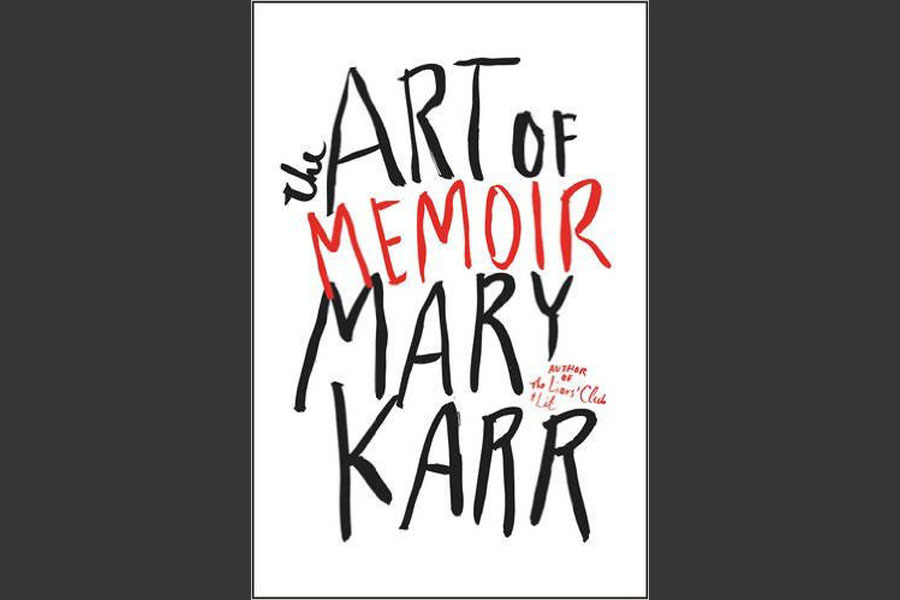Emotional Truth in Memoir
Christina Lee
 For months now, I’ve been trying to write about my dad walking me down the aisle. I’ve been failing miserably and I haven’t known why. Of course it’s partially family loyalty: any time I talk about his depression, even casually, I feel like a kid cussing on the 6th grade playground. There’s also the fact that my wedding was the best and most fabulous day of all the days—why focus in on the bittersweet?
For months now, I’ve been trying to write about my dad walking me down the aisle. I’ve been failing miserably and I haven’t known why. Of course it’s partially family loyalty: any time I talk about his depression, even casually, I feel like a kid cussing on the 6th grade playground. There’s also the fact that my wedding was the best and most fabulous day of all the days—why focus in on the bittersweet?
The smoldering wreckage of this draft was on my mind when I booked tickets to see Mary Karr, the patron saint of memoir, speak at the L.A. Library’s lecture series, Aloud. I hoped just being in her presence would help me.
I was right. At the risk of sounding like a super-fan, pretty much everything she said was awesome. (And she said it all while wearing killer gold-chain-bedecked boots.)
I was especially struck by her ideas on truth. She began by reminding us that all writers fight the tendency to sensationalize. In extreme cases, this leads to James-Frey-level disaster. Of course, most of us know not to cross that line. (Whenever I’m tempted to, I imagine a giant, sprinkle-coated hand descending from the sky to choke me.)
Most of us struggle with a subtler lie: the lie we’re telling ourselves. We find our own experience a bit boring, so we tell little lies as escape. We undervalue the real story, so we ramp up the drama.
On some level, I already knew to be on the watch for both these pitfalls. What surprised me was Karr’s claim that our truth is actually more interesting than our dramatizations. As she writes in The Art of Memoir, “A memoirist forging false tales to support his more comfortable notions—or pump himself up for the audience—never learns who he is. He’s missing the personal liberation that comes from the examined life.”
To illustrate this point, Karr told us about her process of writing Lit. She said she wrote several drafts vilifying her husband. Then she wrote one vilifying herself. Neither felt true. Many drafts in, she realized the real story was how she’d held on to hope for her marriage long after she had reason to. Her hope was so strong, she said, it embarrassed her.
Here she turned to the audience, in her very warm way, and said, “you know?”
The whole crowded nodded—one motion, like a group heartbeat.
And I got it. I got what she meant. The power in memoir isn’t in the tallness of the tale, but in the knowing together, author and audience. And to get to that point, what you say has to be true.
So I looked back at my draft. Most of it was a lie. Not a sprinkled-hand-level lie. The sneaky kind…a lie to myself. I’d been wrapped up in being dramatic, and I’d been writing myself as the saintly, victimized daughter.
What, if anything, do I really know about the ten years we’ve lived with my dad’s depression?
This is what I know: 1.) His depression has hurt me 2.) I can’t seem to find the words to describe that hurt. And I don’t just mean writer’s block. I mean that whenever I try to write about it, I clam up, emotionally. If I resent him, I’m selfish (and also a cliché…another female writer with daddy issues). Do I get to feel anything other than thankful he’s alive? Do I get to feel abandoned? Can I claim this story, or is it only his to tell? And if my words don’t heal him, what are they even worth?
Alright. So all I know is I don’t have the words. For a writer, it’s a very odd discovery. Even weirder: it’s the first thing I’ve written about him that actually feels true.
I should note that there’s a sharp distinction in Karr’s book between interior truth and cold hard facts. In The Art of Memoir, Karr clarifies this—we are not supposed to be producing “crisp external events played from a digital archive. It’s the speaker’s truth alone. In this way, the form constantly disavows the rigors of objective truth.” However, this is not permission to ditch our emotional honesty. As she says, “I couldn’t report a malicious quip from my ex-husband without mentioning that he never spoke to me that way.” We don’t have to obsess over getting every practical detail right, but we do have to let truth guide our narration.
Armed with all this, I begin another draft.
Here is a memory of my wedding day: I’m at the top of the Carmel Beach stairwell. I’m watching the choppy waves and straining to hear my entrance music. Dad turns to me and says, “Did you know I had several seizures today.” And I say, “I’m sorry. Are you proud of me, though?” And he says, “Yes.”
But just now, as I write this down, a different memory surfaces. This time he says, “Remember how we used to come here on vacation? This is so neat. This is just so neat.” He squeezes my hand.
This essay will take me a long time, but I’m okay with that. Now, more than I want to write something dramatic, or something sad, or something to publish, I want something true.